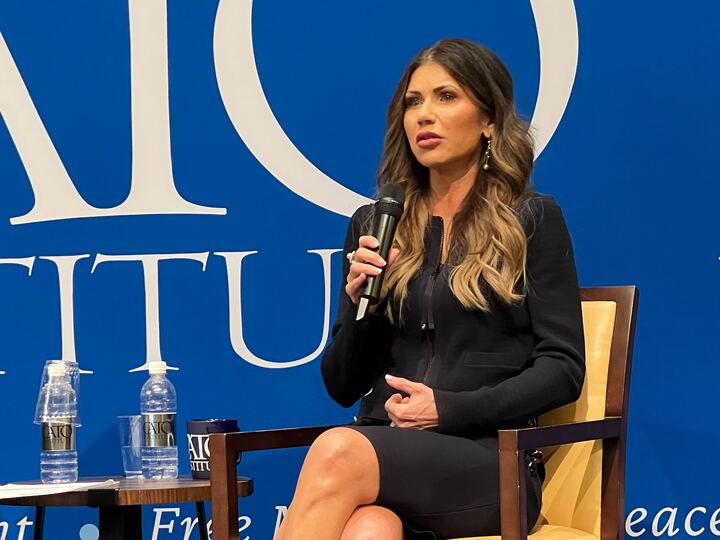WASHINGTON — Gov. Kristi Noem (R-S.D) led a discussion on COVID-19 policy and South Dakota’s “freedom-focused” approach to the pandemic at the Cato Institute on Thursday, citing the positive impact it’s had on the economy.
During the pandemic, South Dakota was the only state that did not order businesses or churches to close. Noem also did not issue any statewide mask mandates or stay-at-home orders, despite facing criticism from mayors, governors, county commissioners and the press.
According to data from Ballotpedia, 43 states issued orders mandating residents to stay at home and for nonessential businesses to close when the pandemic hit in 2020.
Noem said she wasn’t a health expert when she was elected as governor in 2019, but she spent time researching the virus and thinking about what her responsibilities were to protect South Dakotans before the first set of cases arrived in the state.
She said she didn’t succumb to political pressures because she trusted residents to be personally responsible and felt it wasn’t in her authority to make decisions for families.
“We saw that those business owners made different choices based on what worked for them and their model,” Noem said. “As governor, I would have never been able to do that – made a decision that would have helped all of them, specifically how they needed it.”
According to South Dakota’s Department of Health, there have been 276,655 cases, 12,458 hospitalizations, and 3,176 deaths since the pandemic started. The state ranks 22nd in COVID-19 related deaths, with 356 per 100,000 people.
Noem said governors who issued mask mandates and stay-at-home orders acted out of fear of being ridiculed and blamed for deaths. She also said the nationwide restrictions demonstrated the influence the Chinese Communist Party had on the country, which she described as “alarming.”
“I’m just a big believer that when you have leaders overstep their authority, especially in a time of crisis…that’s when you break this country, then that’s when you lose a lot of the rights and freedoms that you have,” Noem said.
Politico reported that states with more restrictions experienced lower rates of death and hospitalizations but tended to have worse educational and economic outcomes.
“To be able to push back on that kind of government control, I think it is incredibly important that people know that there’s a state like South Dakota, where it was different,” Noem said. “People have to hear the story that there was a place that did it differently and was thriving because of that.”


